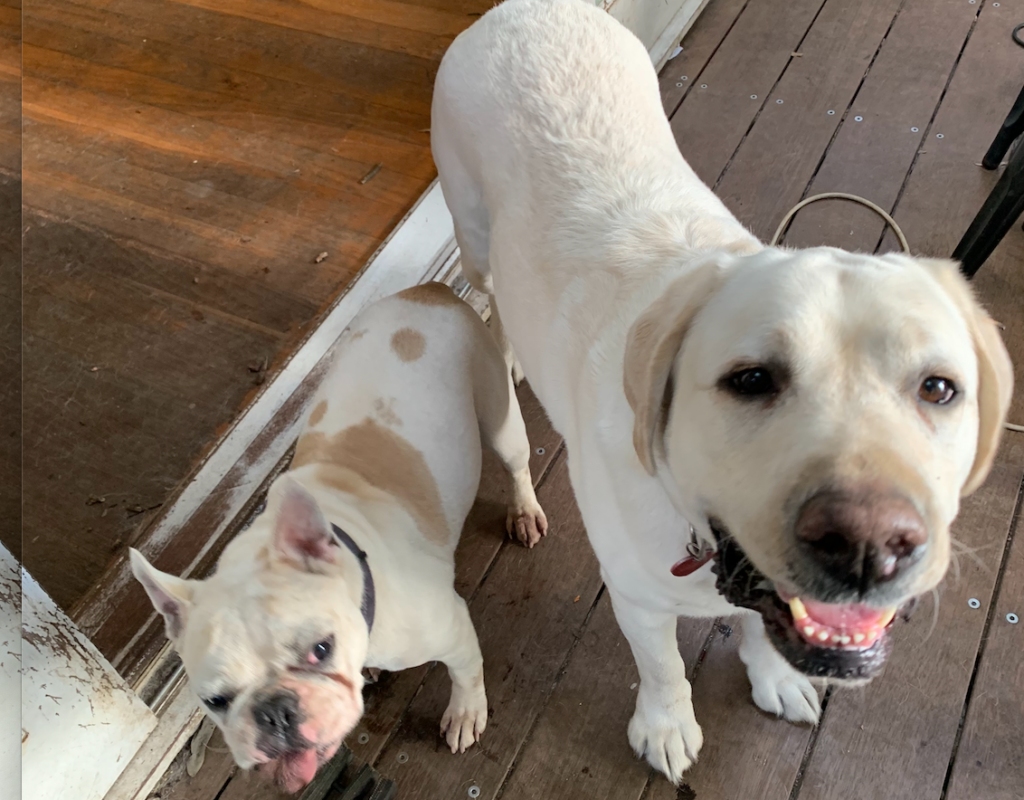Two RACGP presidents in a row … could be coincidence. And the sense of control you get from fee for service probably is an illusion.
On TMR’s Tea Room podcast last week outgoing RACGP president, Adjunct Professor Karen Price, made some interesting references to the power of GPs on social media.
She attributed better dialogue in the sector on key goals for the college almost directly to the rise of various GP social media groups, and named the one she co-founded, and which is generally seen as most influential and politically powerful, GPs Down Under (GPDU).
“I think there’s been a better dialogue, and certainly in my two years I think there’s also the use of social media, the GPs Down Under group and all the other groups – there’s lots of other groups – where [there are] many senior people who’ve been involved in the college and understand the relationship with government, which is always challenging.”
Another early and very influential force in the rise of GPDU, and a long time GPDU peer of Dr Price at the top, is guess who?
Yep, Dr Nicole Higgins, the new RACGP president (Dr Higgins, by the way, is an excellent choice of president for all sorts of reasons we aren’t going to get into in this article).
Are we talking coincidence here, or is the GPDU tail now wagging the RACGP college dog? (And by dog I mean no disrespect at all, I have a giant silly lab and a very weird French bulldog sitting at my feet now, and I love them both.)

Quite a few years ago, when I used to regularly chat to Professor Price about the phenomenon of GPDU, she wasn’t shy about suggesting that there needed to be some sort of alternative voice to the college, one that was strong enough for the college to start listening a lot more to the “masses” rather than what seemed to be an elite group of college power brokers who held on to power tightly and passed it along like some sort of English peerage system.
Even when asked directly, Professor Price never said (or even faintly hinted) that GPDU’s emerging influence could or would one day be used as some sort of voting block to insert one of their own into the palace with a view to effecting change. She tended to focus on the idea that GPDU would by its nature bring the voice of non-politically powerful GPs to the fore and good would be done.
But Professor Price never denied that GPDU might end up in this place of power one day, either.
And this, in a manner, is how GPDU’s moderators play politics: they deny they actually ever play it, maintaining that GPDU is just a “national park” where everyone comes on an equal basis to fairly and safely discuss pertinent issues (and enjoy the wildlife).
Professor Price was never about bringing the college down. She did want to change it, though. She felt her leadership of the college, underpinned by the far broader member base of GPDU and what was being said on the platform, would benefit all GPs ultimately.
Professor Price had always expressed a desire to one day be president.
In way she was baking the GPDU cake and intending to eat it as well, at least in terms of what she politically wanted to achieve.
You could easily argue now, to torture the metaphor a bit, that she is sitting down for another piece, as Dr Higgins, a like-minded long-term GPDUer, takes up where she left off.
It does feel a lot like GPDU has turned into a president-maker.
There hasn’t actually ever been an evil underlying plan to get people into power at any stage of the process of the platform evolution, but it’s always been in the back of the minds of founding moderators that it could be used to help do that.
One thing is, GPDU and its moderators desperately try to steer clear of being seen to be in the game of politics at all.
According to users (I’m not a GP so can’t be on it), early on in this last election moderators (in some manner) banned election discussion.
If this occurred it’s a bit strange, given Professor Price likely did ride into presidency on the back of the platform in the prior election.
What is perhaps more telling is that near the end of the most recent election the ban, apparently, somehow got lifted and in the last week there was a frenzy of questions and answers going back and forth with certain candidates getting good air time.
If all true, GPDU feels like it has got an identity crisis – somewhere between safe national park for GPs to discuss stuff just with GPs, and political queen and, maybe one day king, maker.
Possibly contributing to the identity crisis theory is the relationship (or lack thereof) that Dr Chris Irwin, the president of breakaway group the Australian Society of General Practice (ASGP) has had with the platform over the years.
Consider that had there not been preferential voting, Dr Chris Irwin would have won this year’s election by a decent margin.
Dr Irwin was kicked off GPDU during the previous election (which Professor Price won and which he was also a candidate), and having gotten himself back on after the election, got kicked off again, not long after he started ASGP.
Dr Irwin makes no bones about being political and what he wants to change in GP land. So on the one hand you might imagine GPDU moderators kicked him off both times because he was being too political.
But that doesn’t gel very well with how the platform seems to have helped the last two presidents get to power.
The platform is either politically influential or not.
Whether you ban political discussions or not, if you kick Dr Irwin off for being too political, you probably are, by default, backing your preferred candidates of Professor Price and Dr Higgins, both pretty well known long-term power brokers on the platform (both Dr Higgins and Professor Price would be horrified at the term “power broker” as neither ever operate in the normal sense of the term, but in the context of the rise of the GPDU platform, the term fits).
Apparently after being kicked off the second time, in the run up to this election GPDU moderators invited Dr Irwin back on the platform.
That’s a bit awkward.
Why, after kicking him off twice, the second time for trying to garner support for ASGP, do you want him back on in the run up to an election?
I’m guessing the GPDU moderators would say “to be fair”… all animals are the same in the national park (we all know that there’s a wild pig problem in our national parks, so the tangential reference to Animal Farm is deliberate).
Dr Irwin declined to rejoin the platform for reasons he isn’t prepared to comment publicly on.
But it feels a lot like a “fool me once” situation. I’m guessing he thought it was playing political games to invite him back and he didn’t want to play.
So how did Dr Irwin managed to win the election on first preferences without the mighty GPDU bloc?
It’s a guess, but prior to getting kicked out the first time, and between being kicked out the second time, he was a very energetic posting member who managed to get a fair bit of air time and engagement. So GPDU in fact may have helped him get some profile that lasted past him being banned the second time.
The other part of his success, of course, is likely to be that he started his own social media group with ASGP.
And while GPDU is nearly at 10,000 members and ASGP facebook is only at 2200 so far, it’s the fight in the dog that counts, and maybe the ASGP members are a bit more energised and active.
None of this feels bad for general practice or the future of the college.
In a manner, as Professor Price told us last week, the increasing involvement of multiple social media groups has given much more voice to members who previously felt powerless in college politics.
GPs are being more heard in their college any which way.
And if the NPS scores we reported a week back on the college are anything to go by, the sequence of reforming presidents, starting with Dr Harry Nespolon, then Professor Price and now Dr Higgins are changing how members feel about the RACGP.
But is GPDU an apolitical platform in all these goings on, as some GPDU moderators would like us to believe?
Doesn’t look like it.
VPE and GP income
That voluntary patient enrolment (VPE) is set to become a reality for GPs in the near future seems a safe bet after Health Minister Mark Butler told the AMA conference that “there’s very broad consensus across the sector [that VPE] is probably the first piece of work needing a deep dive from the [Strengthening Medicare] taskforce.”
The initiative is backed by the RACGP and the AMA but it’s still unclear if it’s actually backed by GPs.
Apparently, a survey run by GPDU was scoring over 90% against the concept before the survey was taken down.
Other anecdotal evidence suggests GPs generally are pretty nervous about the idea.
Some GPs are understandably watching the terrible goings on in the UK with capitation payments and GP pay there over time, and the nightmarish bureaucracy in enrolling patients that became apparent during the Health Care Homes trials, and deciding that VPE probably isn’t for them.
Of the key emerging fears about VPE, the one about it leading to a further decline in GP income needs some scrutiny.
Reporter Francis Wilkins gathered the arguments for and against VPE, including income decline, in a story last week.
The income argument being used by some detractors is mainly that a shift to more captitation based funding in the UK can be correlated with a net decrease in GP pay over the last decade.
One study in the British Journal of General Practice in 2020 found that GP income in the UK fell in real terms between 2008 and 2017 for both partner and salaried GPs.
But GP pay going nowhere or backwards nationwide sounds very familiar.
Is there really any direct correlation between capitation and poor GP pay?
Under fee for service in Australia we’ve gotten somehow to the same place the UK has but with a vastly different funding paradigm.
Which suggests to some analysts that the funding model may not be the main problem.
In the case of VPE in Australia, depending on how fast it goes, it’s been argued that while fee for service hasn’t served GPs well in terms of pay, at least it’s a highly transparent funding method. You do something, put a number on what you did, and get paid for it. Easy to see what happened and a GP has some control in that the more numbers you do, the more money you can make.
VPE block funding and capitation both have opportunity to be a lot more murky, and therefore they are less in the control of the doctor.
In practice, VPE and capitation work on the needs and then the outcomes of a local population of patients.
For both you need really good data for transparency in the funding process.
To give the VPE income critics some ammunition, if you don’t like what happened in the UK, in Australia getting really good data to provide reasonable transparency is going to be a lot harder than the UK, which is far advanced in extracting the right data out of GP patient management systems, and aggregating it for assessment, than Australia.
New Zealand is even a long way ahead of Australia in this respect.
Ask an Australian and New Zealand GP how many diabetes type 2 patients they have and at what stage of management each is. If both don’t know, at least a New Zealand GP can get that information in a few minutes out of their PMS and tell you. An Aussie GP mostly can’t.
So if we do introduce VPE, quickly getting the same transparency you have with fee for service won’t be achievable. We won’t be even close.
But if you step back and think about why both Australia and the UK haven’t kept their GP pay at least in line with CPI, with completely different funding regimes, the argument that VPE will necessarily lead to reduced GP income probably doesn’t stand up.
The fact is, the government has screwed GPs in Australia under a largely fee-for-service model, and if it wants to it will be able to do the same thing with VPE.
The funding model isn’t the major determinant of the level of pay.
That would be politics.
So while surely there is comfort in retaining more transparency and control if you hold tightly on to fee for service, it’s likely an illusory feeling, and if you think about what is better for patients and the overall system moving forward, outcomes-based funding wins hands down.
We aren’t saying VPE aligns to an outcomes-based funding paradigm necessarily.
But the government, the RACGP and the AMA are.
In a perfect world VPE encourages the longitudinal management of patients in the community and protects GP practices from the scourge of low-hanging consult fruit telehealth services that are currently booming.
But we aren’t in a perfect world.
If you step back from VPE and think about how many patients are already by default enrolled to their local practice (ie, they regard you as their long term practice without filling a form in to say so), you do have to wonder if actually trying to force the formal enrolment (it’s a voluntary process but you probably get what I mean) is worth the investment in time and technology that will be needed.
If the government managed to facilitate every GP moving to cloud-based patient management software that can share data far more seamlessly with other providers and patients than their current technology, that would do a lot more to create the sort of transparent data government needs to start accurately funding for outcomes.
In this case, you could make an argument that VPE isn’t actually needed at all.
If you are interested in VPE and funding and technology reform at the GP level in general, you might want to come to WildHealth’s Melbourne Summit on 18 October. Professor Price and Dr Irwin will be among panellists discussing VPE in the context of other major needed healthcare funding reforms. Use the TMR reader code TMRWH20 for your reader discount.





